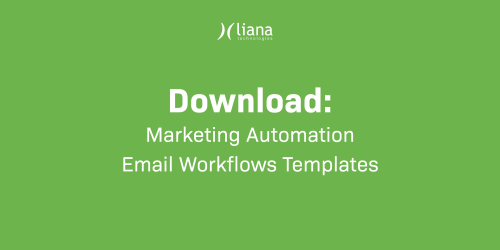“What is marketing automation?”
If you have been an active user of an email marketing software, you’ve most likely come up with this question.
Feeling like the term gives you chills? No need to worry. Let’s break down what marketing automation actually means in today’s marketing. Grab a cup of coffee and learn:
- Marketing automation for small businesses vs. large enterprises
- Marketing automation & data
- Marketing automation benefits
- Marketing automation examples
- Project management for marketing automation
Download a free PDF template to inspire your first marketing automation campaigns.
First off, let’s find out what the good ol’ Wikipedia says about marketing automation:
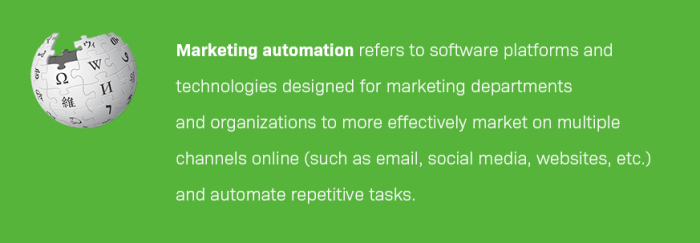
In other words, marketing automation is a software designed to automate some repetitive marketing tasks (such as emails) and make customer communication more targeted and personalized.
You might be wondering:
Should my marketing team be using marketing automation technology?
The answer is definitely yes.
In fact, a whopping 75% of marketers in the State of Marketing Automation Survey said they are already using marketing automation technology.
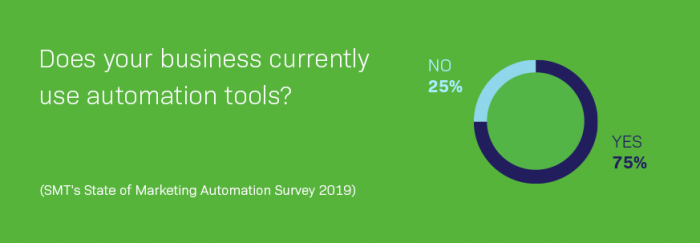
Is marketing automation only suitable for small businesses?
Regardless of your company size and industry, marketing automation is beneficial for your business. These days it's not a question of whether marketing automation should be used, but a question of what for.
Some companies can reap the benefits of marketing automation by automating daily emails, while others can benefit from its lead scoring features.
SMEs typically consist of people wearing many hats. These companies can use marketing automation for getting rid of the manual work and running targeted campaigns with fewer resources. For larger companies marketing automation is essential for handling large masses of fragmented customer data.
Marketing Automation & Data
The automation technology brings no value without utilizing data. Therefore, you need to integrate your marketing automation platform to a channel from which the data will be pulled and utilized into actual marketing campaigns.
Depending on your business, your marketing channels can be:
- CRM
- Website
- Email marketing platform
- Mobile app
- Event management tool
- Social media
- Online store or ERP system
Here’s how marketing automation utilizes marketing data:
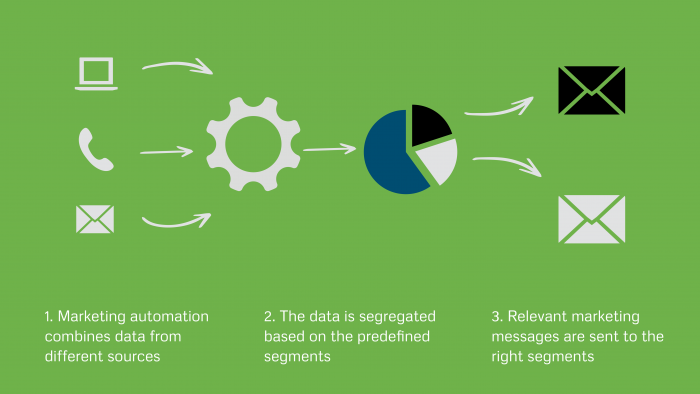
If you are looking to use email as your automation channel, you should start collecting email subscribers. This way, you will have a base for sending targeted communications. Here are tons of tips on how to build your email list.
Marketing Automation Benefits
Let’s break down the benefits of the technology and take a look at some practical marketing automation examples.
1. Improved targeting of messages
Today, consumers are no longer interested in receiving generic offers. Everyone wants an individual-level approach. Instead of talking to the masses, you can send personalized messages and make your content more targeted using marketing automation.
According to our survey results, most marketers find improved targeting of messages to be the most crucial benefit of marketing automation.

Example:
A dentist clinic can send an invitation for an annual check-up to their patients.
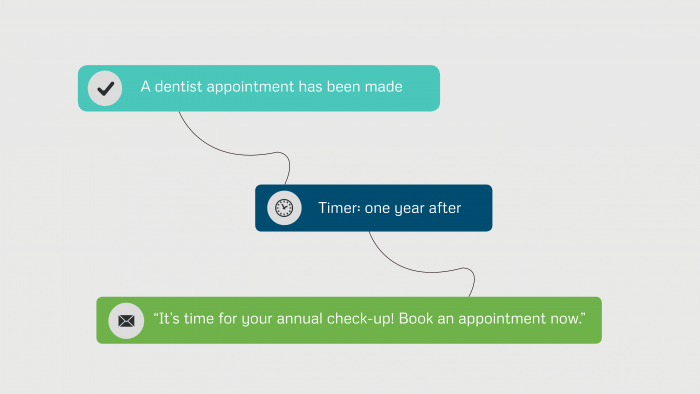
Want to spice up your personalization repertoire? Here are 8 ways to personalize your emails.
2. Improved customer experience
Marketing automation allows companies to make themselves more favorable in the eyes of consumers. By stressing attention to small details, you can create out-of-the-box campaigns to appeal to your customers.
Example:
A company sends a personalized birthday greeting accompanied by a gift card.
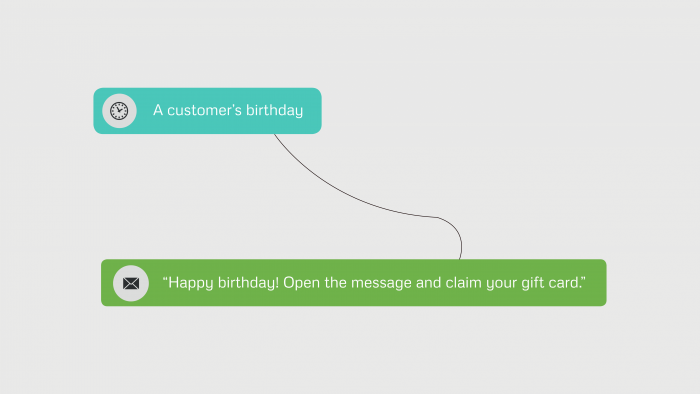
3. Lead generation
The most effective way to use marketing automation for lead generation is to set a workflow that warms up readers and uses a piece of downloadable content to qualify them as prospects.
Consider the following example:
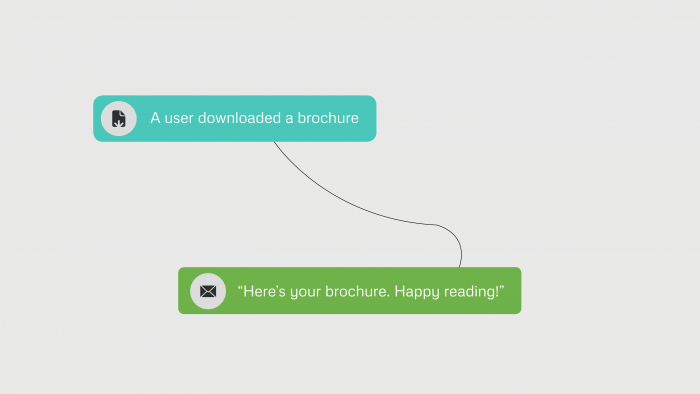
Here’s what our email containing a downloadable guide looks like:

4. Better lead quality
Not only does marketing automation generate leads, but it also helps to identify leads with the highest purchase intention. With a lead scoring function, you can give the most active leads a score and bring only warm leads to your sales team.
Identify the most engaging leads by analyzing different metrics, for example, email openers or clickers:
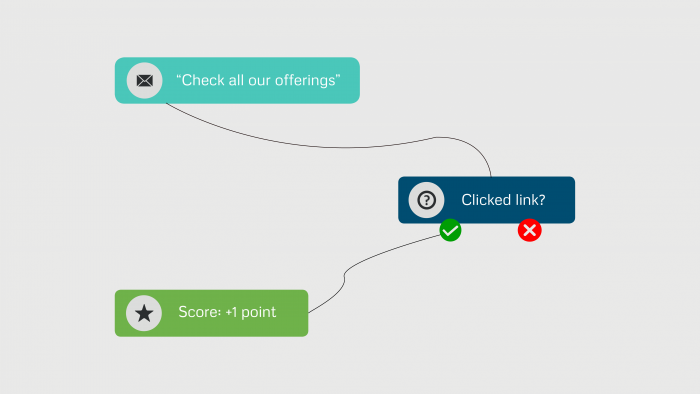
5. Closer collaboration between marketing and sales teams
Marketing and sales collaboration is crucial these days.
By bringing sales-qualified leads, you bridge the gap between your sales and marketing teams. One of the ways to improve the collaboration is to send automated emails to your sales team once a lead reaches a certain score.
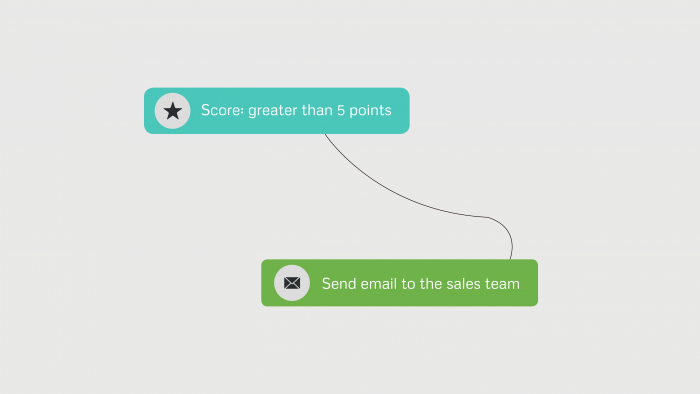
6. Measurable marketing ROI
It’s a well-known fact:
Marketing automation technology can give a helping hand in measuring the effectiveness of your campaigns. With an automation tool, you can compare the right data in a single-view and attribute leads to your revenue.
Let’s say you are running a lead generation advertising campaign on multiple channels simultaneously, such as email, Facebook, website and YouTube. This what your report in a marketing automation solution might look like:
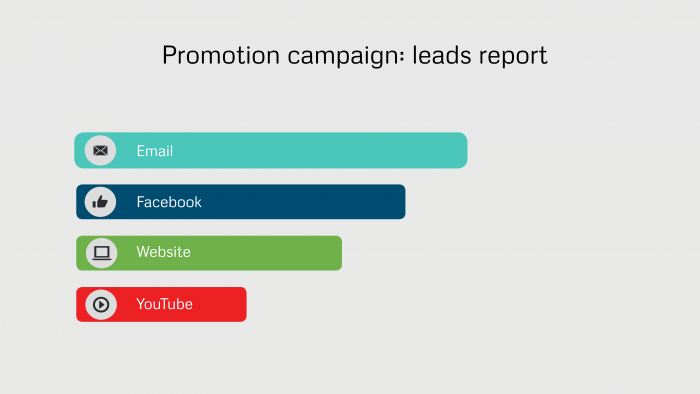
7. Utilizing multichannel marketing data
Today, marketers have a vast amount of customer data at hand – but the data can be rarely utilized to its full potential. Marketing automation combines multichannel data and turns it into actionable marketing actions.
For example, you can track your website visitors and retarget them with a personalized email to keep them back:
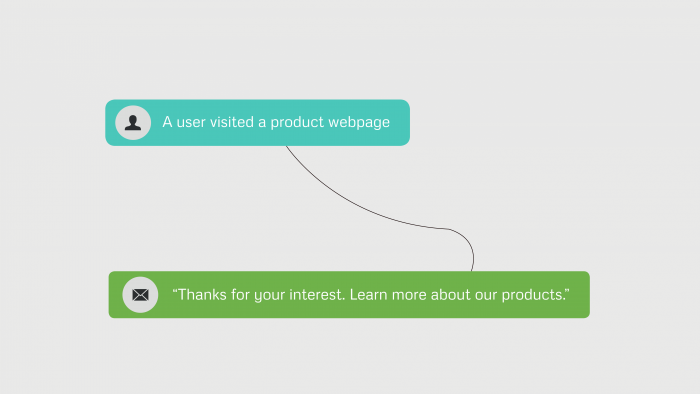
This is exactly how we do it:
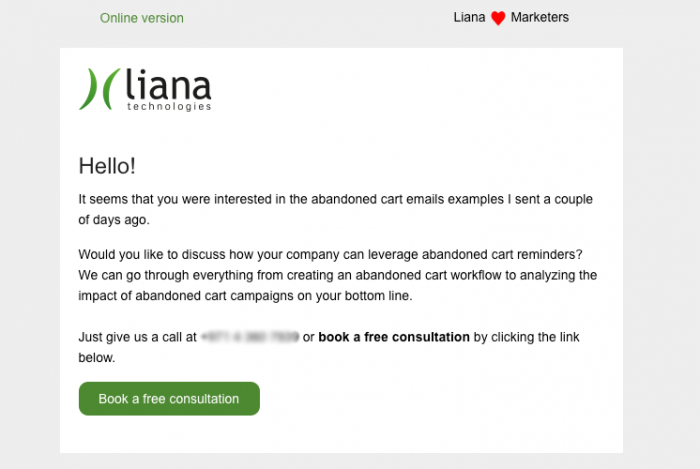
9. Higher conversion rates
By delivering perfectly-timed messages triggered by certain behavior, your conversion rates will improve.
There is a bunch of ways to boost conversions with marketing automation. Some of them are:
- Display personalized offers on your website based on a user’s browsing history
- Send an email with complementary products
- Send a cart abandonment email for e-commerce users
10. Eliminated manual work
Lack of time is a bottleneck for the majority of marketing projects. That’s where marketing automation can step in.
By automating daily emails, marketers can free up their workload and allocate time to something they really love – generating creative ideas.
As an example, you can automate your confirmation emails:
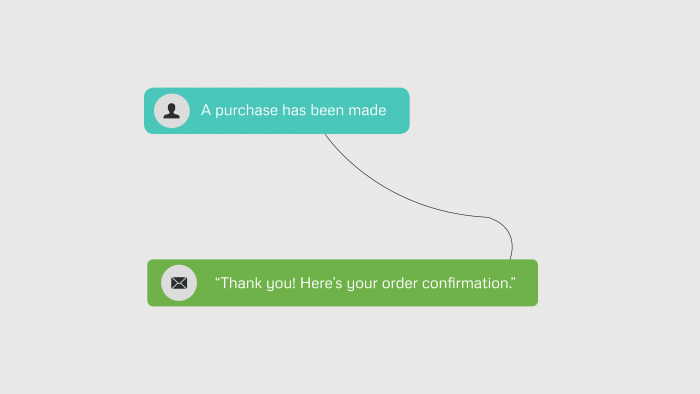
Remember the last time you took an Uber ride? Your receipt has most likely ended up in your inbox immediately after the trip ended. That’s exactly what marketing automation does.
Project management for marketing automation
At the end of the day, it is all about the people who help you reach your business goals. Make sure you have a well-organized team involved in your automation project.
To manage marketing automation like a pro, you need to have at least:
- Someone from the marketing department or even an in-house marketing automation specialist
- Your sales management to provide feedback on the quality of leads and sales
- An external or in-house IT support for handling integrations and other technical issues
That’s just the beginning of what marketing automation can do for your business. To deepen your knowledge on the topic, check out other useful articles on our blog:
